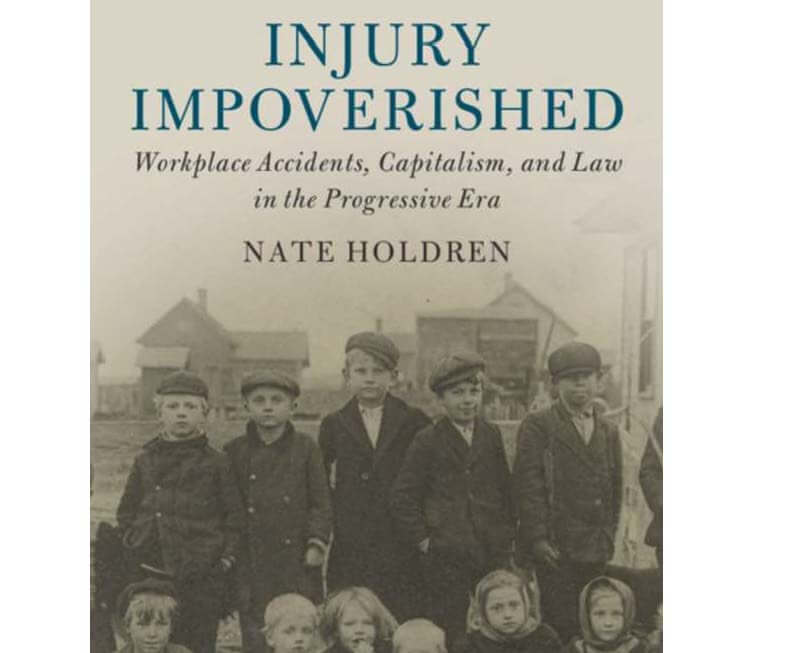A Roundtable Nate Holdren’s Injury Impoverished : Workplace Accidents, Capitalism, and Law in the Progressive Era
Today we begin a week-long roundtable discussion on Nate Holdren’s Injury Impoverished: Workplace Accidents, Capitalism, and Law in the Progressive Era, just published

